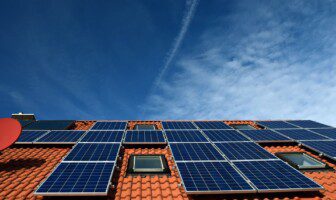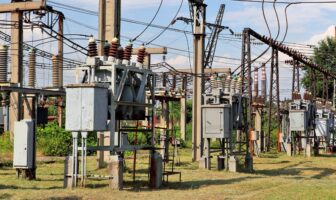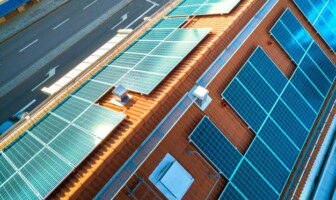
Congratulations – you’ve made the decision to buy a portable generator!
Now you just need to figure out how you can purchase the right one for your needs. Luckily, it’s not that hard to figure out what separates a good portable generator from a bad one.
In fact, if you keep reading, you’ll learn exactly how you can make the right purchase decision when investing in a portable generator.
Let’s begin!
How Much Power Do You Need?
The first thing you need to think about is how much power you need.
The best way to solve this problem is by listing out all of the things you want to power with your portable generator.
Examples of things you may want to power include –
- Computers
- Medical equipment
- Refrigerators
However, if you are going to use your portable generator while traveling or whilst on some sort of vacation, that list might include –
- Cooking equipment
- Outdoor lighting
- Communications devices such as radio or GPS
As you might’ve guessed, the more things you need to power, the more powerful your portable generator will need to be.
To learn how much power your portable generator needs to produce, you’ll need to gather ‘wattage data’ from each of the devices you want to power. This can be found in the documentation that comes with each respective device.
Alternatively, you can find this information on the manufacturer website.
If you are struggling to figure out your power needs, don’t worry. Companies that sell portable generators, such as Source Power Solutions, will be more than happy to help you define your power needs. Just make sure you are absolutely clear about what you want to power, before seeking advice.
The number of devices you are looking to power with your generator will also impact the number of outlets you will need on your generator. Generators that have a lot of outlets can cost more money.
But they’ll be ideal for someone who requires heavy usage, in regards to powering multiple devices.
How Easy Should It Be to Transport the Generator?
When buying a portable generator, the effort required to transport it should also be factored into your purchase decision. If you are going to be moving your generator from place to place, you should think about getting one with wheels.
Different kinds of generators have different kinds of wheels. If you are transporting a generator over ‘rough’ terrain, the wheels should be designed in a way that makes them hard to puncture.
People who are buying generators should also consider the size and weight of the machine. If you go for some of the best energy storage solutions, you will be able to pick up generators who are affordably sized and easy to move around. This will allow you to shift them in an easy and convenient manner. People who fail to take the size into consideration are unable to store them inside premises in the event of flooding or a storm.
How Long Do You Need the Generator to Run?
You should also think about how long you want the generator to run, from start to finish, when making your purchase decision. In other words – how long do you want your generator to work, without having to refuel it?
If you are traveling and you are going to be using the generator intermittently, a generator with a short run time should be okay. However, you might need a generator that powers your house overnight. If that is the case, you will need a generator that works for at least 8 hours.
If you want to maintain consistent uptime, it can be a good idea to buy a generator with a fuel gauge. A fuel gauge can help you work out when fuel is about to run low.
You can then quickly ‘top-up’ the generator, without a significant break in power. Not all generators come with fuel gauges as standard, so be sure to check for this feature before making a purchase decision.
Keep Fuel Efficiency in Mind :
A fuel-efficient generator can help you cut costs. That is generally because a fuel-efficient generator can produce more power, per unit of fuel. This is when compared to a ‘non-efficient’ generator.
You can often tell how efficient a portable generator is, by comparing it to other ‘like for like’ models. Suppose a certain generator has an 8-hour run time at ‘50% load.’
However, suppose another generator with identical power output and fuel storage capacity has a 6-hour runtime at 50% load. In this case, it’s clear to see how the first generator is more efficient.
How Much Noise Can You Tolerate?
Portable generators will vary in the amount of noise they produce and you should keep this in mind when making your purchase decision. Manufacturers will provide some information on how noisy a portable generator is. Noise data is often provided in the form of ‘decibels (DB).’
You’ll also tend to find that the noise data is provided, in relation to a certain distance. For example, a manufacturer might state that a portable generator is going to produce 30DB of noise, from 30 feet away.
If you want to buy the quietest generator possible, you need to find one that produces the least amount of DB’s, within a short amount of distance.
Factor External Durability into Your Purchase Decision :
If you are going to be using your portable generator in an environment such as a construction site, you need to find one that has ‘exterior protection.’ A lot of the time, this comes in the form of a ‘roll-cage’ that protects the generator.
You will also find some portable generators have hard outer cases, that protect some of the vital parts of the generator.
When buying a generator with a roll-cage, make sure the roll cage will actually do a good job, in the event of the generator falling over.
Some portable generators have a roll cage, purely for aesthetic reasons. This means it is going to do a poor job of protecting the device, if the generator falls over, for example.
Ready to Buy a Great Generator?
A portable generator can provide you with power, no matter where you are. In this post, we’ve taken a look at some of the things you can do to make a good purchasing decision when investing in a portable generator.
There’s a lot to take in – but it is important you put a lot of thought into the process. Otherwise, you may end up investing in a portable generator that does a poor job of meeting your needs.
Want to read more content about powering your home or business? Check out our energy section to access our latest posts!
Read Also :





























